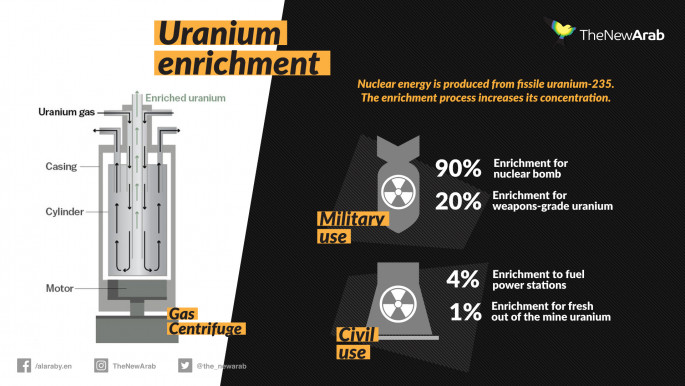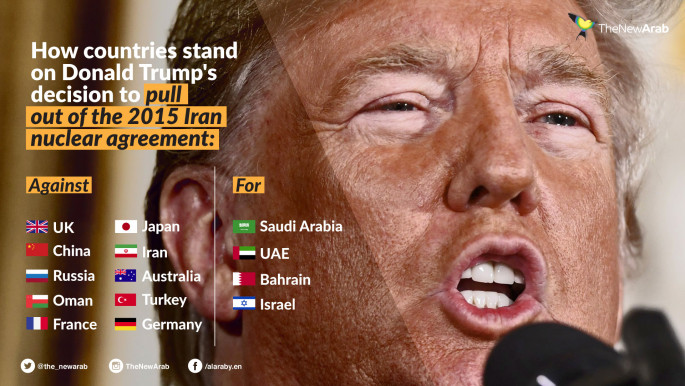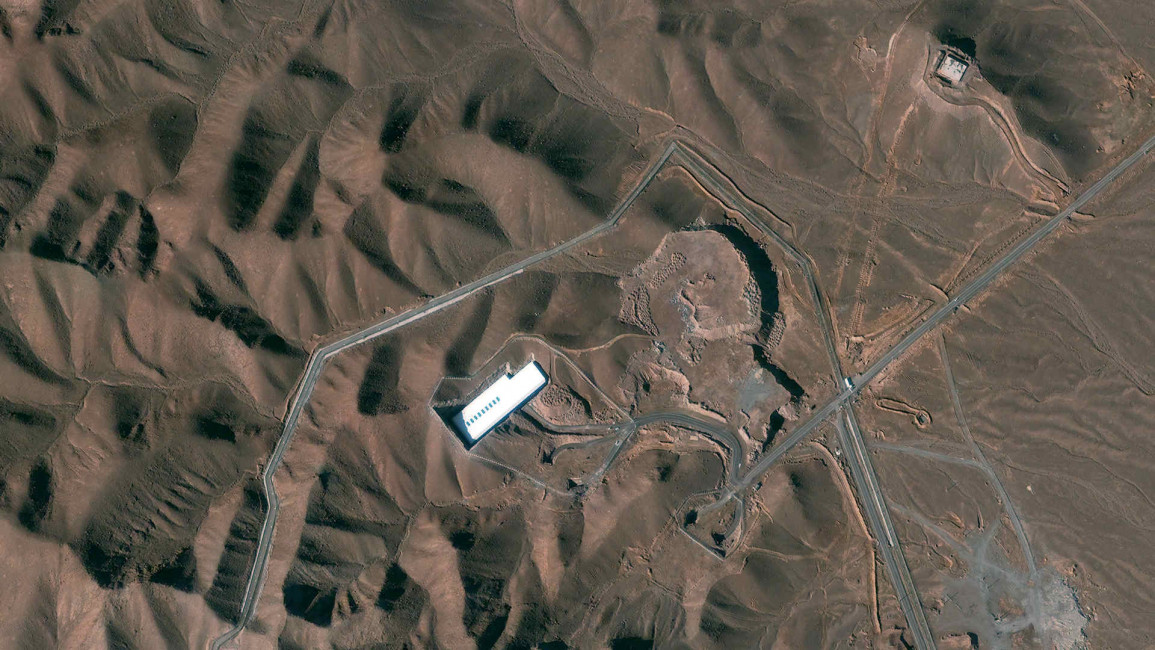Iran to resume uranium enrichment at underground plant in another blow for nuclear deal
Iran President Hassan Rouhani said Tuesday that Tehran would resume uranium enrichment at an underground plant south of Tehran in its latest step back from a troubled 2015 agreement with major powers.
The suspension of all enrichment at the Fordow plant in the mountains near the Shia holy city of Qom was one of the restrictions on its nuclear activities that Iran accepted in return for the lifting of international sanctions.
But Washington's abandonment of the deal in May last year followed by its reimposition of crippling sanctions prompted Iran to begin a phased suspension of its own commitments in May this year.
Rouhani recalled that under the terms of the agreement Iran had retained more than 1,000 centrifuges at the plant which had been running empty since it went into effect.
"Starting from tomorrow (Wednesday), we will begin injecting (uranium hexafluoride) gas at Fordo," Rouhani said in a speech broadcast by state television.
His announcement came a day after tensions flared anew on the 40th anniversary of the US embassy siege and hostage crisis, with thousands in Tehran taking to the streets and Washington imposing fresh sanctions.
Iran said the resumption of enrichment at Fordow would be carried out transparently and witnessed by inspectors from the UN nuclear watchdog, the International Atomic Energy Agency (IAEA).
Read more: Iran marks 1979 embassy siege with chants of 'Death to America'
But Russia, which has close ties with Iran, expressed concern about the latest move.
"We are monitoring the development of the situation with concern," President Vladimir Putin's spokesman Dmitry Peskov told reporters.
"We support the preservation of this deal."
|
At the same time, Peskov said Moscow understood Tehran's concerns over the "unprecedented and illegal sanctions" imposed by Washington.
The move is the fourth announced by Iran since it began responding to Washington's abandonment of its commitments.
'Committed to negotiations'
Iran has repeatedly warned the remaining parties to the deal - the UK, China, France, Germany and Russia - that the agreement can only be rescued if they help it circumvent US sanctions.
European governments have strived to come up with a mechanism that would allow foreign firms to continue to do business with Iran without incurring US penalties.
But to Iran's mounting frustration, their efforts have so far failed to have any significant impact.
Rouhani stressed that Iran remained committed to efforts to save the 2015 agreement despite its phased suspension of some of its commitments.
"The fourth phase, like the three previous ones, is reversible," he said.
"We are committed to all the behind-the-scenes negotiations we have with some countries for a solution. Over the next two months, we will negotiate more."
Rouhani said Iran wanted to return to a situation in which "we can easily sell our oil, we can easily use our money in banks".
If that were achieved, "we will completely go back to the previous situation".
 |
The European Union warned Monday that its continued support for the deal depended on Tehran fulfilling its commitments.
Maja Kocijancic, spokeswoman for EU diplomatic chief Federica Mogherini, said the bloc "remains committed" to the deal but "our commitment... depends on full compliance by Iran".
"We have continued to urge Iran to reverse such steps without delay and to refrain from other measures that would undermine the nuclear deal."
On 1 July, Iran said it had increased its stockpile of enriched uranium to beyond a 300-kilo maximum set by the deal, and a week later, it announced it had exceeded a 3.67-percent cap on the purity of its uranium stocks.
On 7 September, it fired up advanced centrifuges to boost its enriched uranium stockpiles.
Read more: Iran bans nationals from Iraq pilgrimages following mass anti-government protests
On Monday, Iran announced a more than tenfold increase in enriched uranium production as a result of the steps back from the nuclear deal it had already undertaken.
Enriched uranium production has reached five kilogrammes per day, Ali Akbar Salehi, the head of Iran's Atomic Energy Organisation, told reporters.
That compares with the level of 450 grams two months ago.
 |
Follow us on Twitter: @The_NewArab



